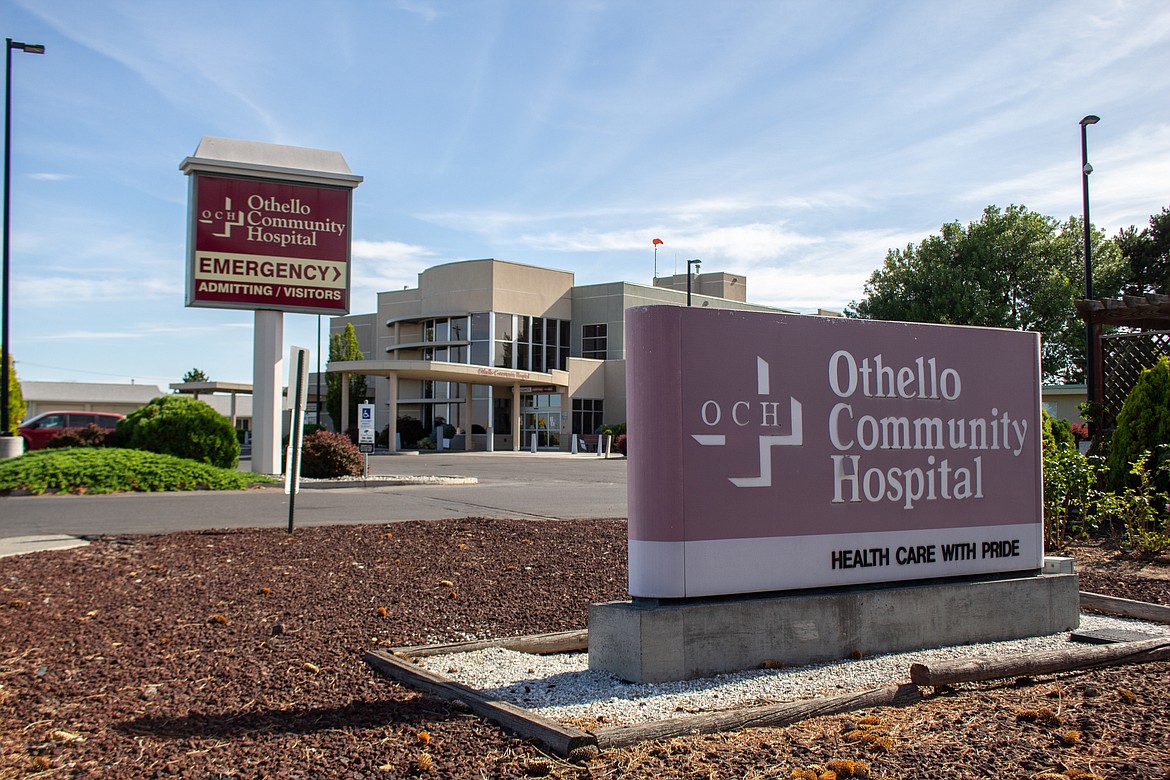Local hospitals review plans to handle a surge, required in reopening plan
CHERYL SCHWEIZER | Hagadone News Network | UPDATED 5 years AGO
Senior Reporter Cheryl Schweizer is a journalist with more than 30 years of experience serving small communities in the Pacific Northwest. She began her post-high-school education at Treasure Valley Community College and enerned her journalism degree at Oregon State University. After working for multiple publications, she has settled down at the Columbia Basin Herald and has been a staple of the newsroom for more than a decade. Schweizer’s dedication to her communities and profession has earned her the nickname “The Baroness of Bylines.” She covers a variety of beats including health, business and various municipalities. | July 17, 2020 12:04 AM
EPHRATA — One of the possibilities of the ongoing coronavirus outbreak is that a sudden increase in patients with the virus could fill a local hospital to capacity — or more — in just a few days. Preparing to meet a sudden increase has been the focus of planning since the outbreak began, and it will continue to be a focus as counties try to reopen.
The concept is called a “surge,” and it’s not new to hospitals. Glenda Bishop, chief executive officer at Quincy Valley Medical Center, said every hospital that accepts Medicare patients is required to have a surge plan.
Rosalinda Kibby, chief executive officer at Columbia Basin Hospital in Ephrata, said hospitals are required to have surge plans for a lot of different contingencies. When there’s an emergency, a hospital — any hospital — may have more patients than its licensed operating capacity.
“That’s when your surge plan comes into play,” Kibby said.
Each hospital is licensed for a specific number of patients. Columbia Basin Hospital is licensed for 25 patients, and in a surge situation, could treat up to 29, Kibby said. Othello Community Hospital’s chief executive officer, Connie Agenbroad, said OCH is licensed for 25 patients and is prepared to treat 13 additional patients if there’s a surge. Quincy Valley Medical Center is licensed for 10 patients and could accommodate up to 18, Bishop said.
The arrival of the coronavirus prompted a review of surge plans and whether hospitals had what they needed to meet them.
There were some surprising discoveries. In the event of a surge, Columbia Basin Hospital needed four additional beds — actual hospital beds.
“We did not have four extra beds in storage, and the state actually supplied those to us,” Kibby said.
Bishop said QVMC’s review looked at everything from staffing to supplies to where hospital officials could buy food if necessary.
Agenbroad said hospital officials had to think about the impact of a surge on the other services the hospital provides. A surge might require reassigning staff and in certain situations bringing in staff from outside of town.
The state restrictions and stay-home orders imposed to combat the spread of coronavirus were eased somewhat for Grant and Adams counties when they entered Phase 2 of the state’s phased reopening plan. The reopening plan requires an application from each county trying to move on to the next phase, and a review of surge capabilities at each hospital is part of that process.
For Adams County’s application to enter Phase 2, OCH was asked by Adams County Health District, Agenbroad said, to confirm that it had enough room to treat the prospective patients, enough personal protective equipment for hospital staff for 14 days and sufficient equipment, such as ventilators and lab testing supplies. The hospital certified that it did, and the county’s application for Phase 2 was approved by state officials.
Health districts write the applications. Theresa Adkinson, director of Grant County Health District, said Washington Department of Health is responsible for evaluating the surge plans.
A similar process will be necessary to reach Phase 3.
But hospitals and health districts in the region have been in close contact with each other, Adkinson said, checking on confirmed and suspected coronavirus cases.
“Daily, we are tracking,” Kibby said.
Cheryl Schweizer can be reached via email at education@columbiabasinherald.com.
ARTICLES BY CHERYL SCHWEIZER

Raising livestock is the tough part of fair competition
MOSES LAKE — Participants in livestock classes at the Grant County Fair exhibit a diverse range of animals, including steers, chickens, and horses; they come from various communities with varying levels of experience. There does seem to be one point of agreement: raising animals is a lot of work. It's even more work than the show ring.

Grant PUD line safety demo focused on safety
MOSES LAKE — It is the message of the Lineman Safety demonstration put on by Grant County Public Utility District that while it’s easy to forget power lines are overhead, the electricity they transit must be respected.

GALLERY: Opening day at Grant County Fair
MOSES LAKE – The Grant County Fair began Tuesday with vendors, local artisans, Future Farmers of America students and those who crave the taste of a Space Burger gathering at the Grant County Fairgrounds.

